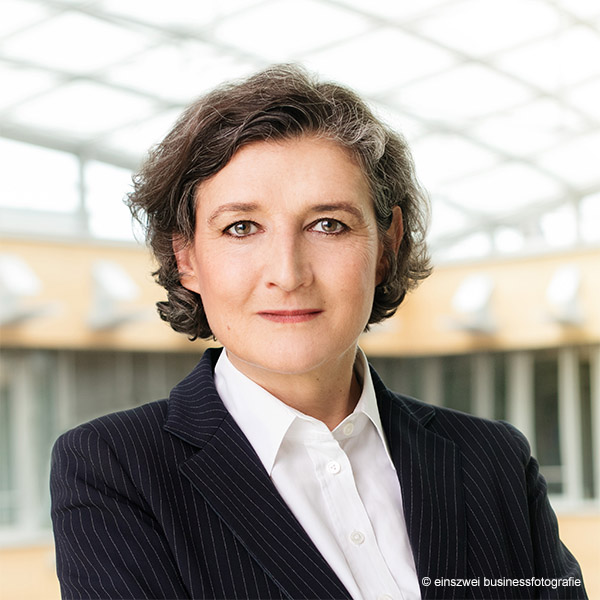LATEST INTERVIEW: Dr. Viola Bronsema, Managing Director, BIO Deutschland

Together with the BioRegionen Working Group, BIO Deutschland is organizing German Biotechnology Days, being held this year in Berlin on April 18-19. What's on the agenda?
First of all, we want to take a look at the industry as a whole, and not just from the perspective of industry, but also with a view to research, politics, and society. Our agenda is correspondingly broad. One highlight will certainly be the speeches by Dr. Simon Moroney of MorphoSys and Prof. Dr. Hannelore Daniel from the Technical University of Munich in the opening plenary. This will also be when the GO-Bio Award will be awarded. This is a special prize for start-ups in the biotechnology industry. Dr. Georg Schütte, State Secretary at the Federal Ministry of Education and Research will be presenting the award. The plenary session of the first day offers simultaneous translation for our international attendees. The following start-up challenge and company presentations will be in English as well.
Berlin is an ideal place for our event. It is an attractive tourist city and a leading location for biotechnology and life sciences - and it is the home of our association.
The German biotechnology industry saw €674 million in capital investments in 2017, a new record. Your association and the German industry magazine "Transkript" crunched the numbers. What do you think is behind this success?
The German biotechnology industry has reached a new level of maturity. Word has also spread among foreign investors that very good biotech research and product development is available here for comparatively little money. In recent years, there were often just one or two companies that had access to very large amounts of equity capital. There have now been several large financing rounds, allowing the financing to be more evenly distributed. This year started off with a big bang: On January BioNTech announced that it had raised $270 million, the largest round of financing for a German biotech company to date. This shows that our industry is developing well. Entrepreneurs are slowly becoming able to reap the fruits of their research success. In the meantime, several products have been approved, which also guarantees a positive reputation in the industry.
What trends are emerging for 2018?
There are many biotech companies that go public in the USA compared to IPOs in Germany. Euronext is also increasingly establishing itself as an exchange for life sciences companies. The critical mass of biotech companies going public there is being reached. An index and comparisons are now available. We hope that this will set an example and lead to more biotech company financing in Europe. The pharmaceuticals industry is also very interested in our pipelines. We expect more partnerships, acquisitions, and IPOs. The quality of our research is now well known. If you look at a biotechnology index, you can see how much the biotech sector is in demand. This will also have positive consequences for German companies.
The biotech industry is strongly driven by innovation. At the same time, it is subject to high regulatory requirements. How can this balancing act be resolved in the future and what do you expect from the next government?
We hope that the politicians, now that they are coming to an agreement, can live up to what they have agreed. The aim is to preserve the value chain in Germany's key technologies: from research and start-ups to more mature industries. A cross-departmental agenda "from biology to innovation" will be developed. The bridge here is biotechnology. It is important to take a positive approach to new technologies and not drive research outside the country by tightening regulation on some levers in such a way that there is no future here. Peter Altmaier, tapped as the next Minister of Economics, has for the first time expressed an idea that there should be a biotechnology agenda. This was reflected in the coalition agreement. We hope that the topic of "biology and innovation" will now be promoted. We need biotechnology specialists in order to keep our second-place ranking behind the US in biopharmaceutical production.
Are there still any levers to be shifted outside politics?
We also need to speak much more openly about what we do and what is possible. Hardly anyone knows, for example, that diabetes drugs are produced with genetically modified organisms. We need to explain what modern biology can do and what we can gain from it, for both our health and our environment. Biotechnology is used in sewage treatment plants, cheese production, bread baking, diabetes, and cancer drugs. We must continue to communicate that it is advantageous for everyone if we can keep up.



